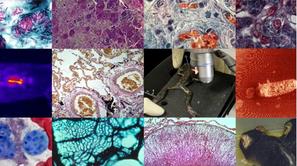
язык курса
длительность курса
понадобится для освоения
для зачета в своем вузе
за обучение
Dear learners, please note that only part of the materials is available for free. All course materials will be available after certification payment.
The course describes subject and methods of Pathophysiology, its place within system of biomedical sciences and history. It includes General Nosology (concept of health and disease, general etiology and pathogenesis, pathological processes and states, role of causal factors, conditions, reactivity and somatotype in pathology).
The course describes subject and methods of Pathophysiology, its place within system of biomedical sciences and history. It includes General Nosology (concept of health and disease, general etiology and pathogenesis, pathological processes and states, role of causal factors, conditions, reactivity and somatotype in pathology). It gives systematic of locally and centrally driven typical pathological processes: arterial, venous and combined hyperemiae, stasis, inflammation, immunopathological processes (including allergy and autoimmune disorders) acute phase response, fever, stress, shock, etc. Course deals with functional, metabolic and informational aspects of typical pathologic processes, like disorders of signaling, reception, post – receptor translation, programming and program archiving, conflicts of programs in living systems. It contains the consequent analysis of the injury and defensive responses as regards separate cells, organs and tissues and the whole organism. The lectures based on author’s original three-volumed textbook and workshop in Pathophysiology republished in Russia many times.
Distance-learning
This course may be of interest to bachelors, masters and graduate students of higher educational institutions, as well as to all those who are interested in the designated topic. Some related experience required. The course will help potential employees to receive evidence-based information that gives a competitive advantage in their own employment.
This course consists of 6 modules:
1. Pathophysiology as a Science
2. General Nosology. Health and Disease
3. Aetiological doctrines: monocausalism, conditionalism and constitutionalism
4. Locally driven typical pathological processes. Pathophysiology of microcirculation
5. Pathophysiology of inflammation. Part 1
6. Pathophysiology of inflammation. Part 2
After completing the course, students will:
Know the terms used in pathology; the essence and basic patterns of typical pathological processes; general concepts of etiology, pathogenesis, general nosology, principles of classification of diseases; characteristic functional-metabolic and informational changes in internal organs in the most important human diseases; fundamental ideas about substrate-energy and information disorders in diseases and pathological processes; principles of experimental modeling of diseases and pathological processes.
Be able, basing on the description, to express an opinion about the nature of the pathological process and its clinical manifestations; conduct a pathophysiological analysis of clinical, laboratory, functional diagnostic, experimental data and formulate, on their basis, a conclusion about the possible causes and mechanisms for the development of pathological processes (diseases); compare the results of experimental studies on animals with data obtained from patients; analyze the problems of general pathology and critically evaluate modern theoretical concepts and trends in medicine; plan and conduct (in compliance with relevant rules and bioethical norms) experiments on animals; process and analyze the results of experiments, correctly understand the significance of the experiment for the study of clinical forms of pathology; interpret the results of the main diagnostic clinical and immunological tests; substantiate the principles of pathogenetic therapy of the most common diseases.
Own the basic methods of clinical laboratory and functional diagnostic studies; the basics of clinical and pathophysiological analysis and the principles of clinical and pathophysiological interpretation of data from clinical, laboratory and functional diagnostic studies; knowledge that is necessary in the study of clinical disciplines.
ПК-1 - готовность к осуществлению комплекса мероприятий, направленных на сохранение и укрепление здоровья и включающих в себя формирование здорового образа жизни, предупреждение возникновения и (или) распространения заболеваний, их раннюю диагностику, выявление причин и условий их возникновения и развития, а также направленных на устранение вредного влияния на здоровье человека факторов среды его обитания .
ОПК-5. Способен оценивать морфофункциональные, физиологические состояния и патологические процессы в организме человека для решения профессиональных задач
Know the terms used in pathology; the essence and basic patterns of typical pathological processes; general concepts of etiology, pathogenesis, general nosology, principles of classification of diseases; characteristic functional-metabolic and informational changes in internal organs in the most important human diseases; fundamental ideas about substrate-energy and information disorders in diseases and pathological processes; principles of experimental modeling of diseases and pathological processes.
To be able, basing on the description, to express an opinion about the nature of the pathological process and its clinical manifestations; conduct a pathophysiological analysis of clinical, laboratory, functional diagnostic, experimental data and formulate, on their basis, a conclusion about the possible causes and mechanisms for the development of pathological processes (diseases); compare the results of experimental studies on animals with data obtained from patients; analyze the problems of general pathology and critically evaluate modern theoretical concepts and trends in medicine; plan and conduct (in compliance with relevant rules and bioethical norms) experiments on animals; process and analyze the results of experiments, correctly understand the significance of the experiment for the study of clinical forms of pathology; interpret the results of the main diagnostic clinical and immunological tests; substantiate the principles of pathogenetic therapy of the most common diseases.
Own the basic methods of clinical laboratory and functional diagnostic studies; the basics of clinical and pathophysiological analysis and the principles of clinical and pathophysiological interpretation of data from clinical, laboratory and functional diagnostic studies; knowledge that is necessary in the study of clinical disciplines.
язык курса
длительность курса
понадобится для освоения
для зачета в своем вузе
за обучение

Кандидат медицинских наук
Должность: заведующий кафедрой патологии, доцент
По данному курсу возможно получение сертификата.
Стоимость прохождения процедур оценки результатов обучения с идентификацией личности - 3600 Р.